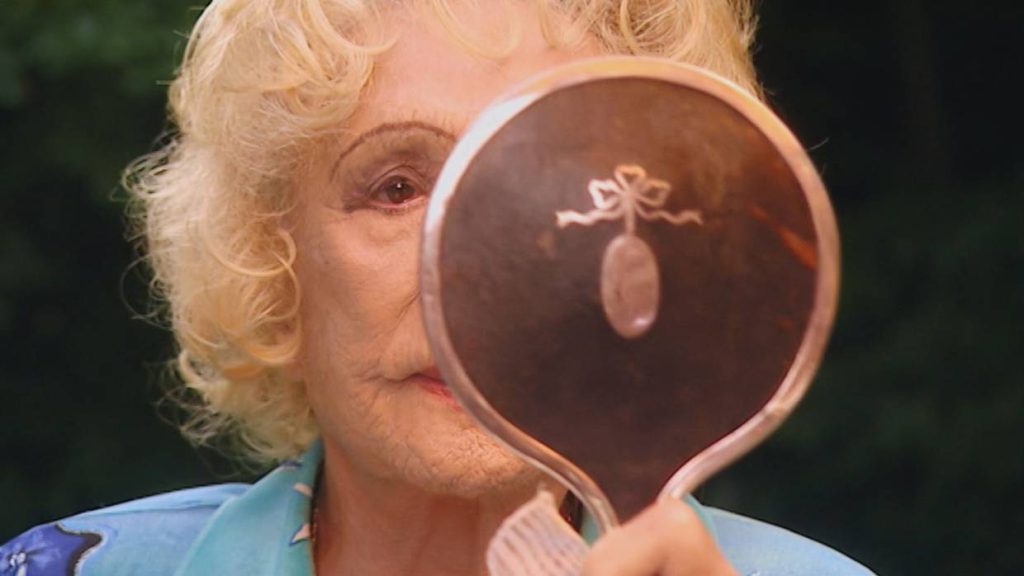Listen to the article
New Documentary Unravels Riefenstahl’s Nazi Connections Through Unseen Archives
A groundbreaking documentary challenges the long-maintained innocence of Leni Riefenstahl, the controversial filmmaker whose propaganda films helped shape the image of Nazi Germany under Adolf Hitler’s regime.
For decades after World War II, Riefenstahl adamantly denied any ideological alignment with the Nazi party or knowledge of the Holocaust. However, the new film “Riefenstahl,” directed by Andrew Veiel, presents compelling evidence suggesting she was far more complicit than previously acknowledged.
The documentary draws from an unprecedented trove of personal materials—700 boxes containing approximately 200,000 photographs, hundreds of hours of private recordings, and numerous film reels—that Veiel and producer Sandra Maischberger accessed with unrestricted permission from Riefenstahl’s estate.
“I was thrilled,” Veiel told Aish.com. “The big question was whether her estate actually contained fresh insights. After all, it seemed likely that Riefenstahl had carefully curated and sanitized her archive before her death.”
What the filmmakers discovered contradicted Riefenstahl’s carefully constructed narrative. Handwritten notes, diary entries, and draft memoirs revealed a different version of events than what she had presented publicly for over half a century.
Among the most revealing finds was a collection of pages describing her childhood “which differed fundamentally from the published memoirs,” particularly regarding abuse by her father—suggesting a pattern of rewriting personal history that extended to her professional life.
Veiel’s team also assembled what they called the “701st box”—materials conspicuously missing from Riefenstahl’s estate but located in other archives. A 1934 interview with the Daily Express proved particularly damning; in it, Riefenstahl admitted to becoming “an enthusiastic National Socialist” after reading just the first few pages of Hitler’s “Mein Kampf” in 1932.
The documentary meticulously traces Riefenstahl’s rise from celebrated actress to director whose work caught Hitler’s attention. Her films “Triumph of the Will” and “Olympia” are widely regarded as pioneering technical achievements, though they served as powerful propaganda tools for the Third Reich.
Perhaps most disturbing is evidence of Riefenstahl’s direct participation in filming propaganda scenes using child inmates from a nearby concentration camp as extras for her film “Tiefland”—a charge she consistently denied throughout her life.
“Riefenstahl remained loyal to the ideology of the Nazi regime even after the war,” Veiel notes with evident surprise. “That shocked me. I had not expected her to truly repent, but at least to have shown, in private, a bit more critical reflection on her own role. Sadly, that was not the case.”
The film also connects historical antisemitism with contemporary political movements, highlighting unsettling parallels between Riefenstahl’s rhetoric and that of Germany’s current far-right AfD party. This contextual framing underscores the documentary’s relevance amid rising nationalism across Europe.
One of the most explosive revelations concerns Riefenstahl’s possible role in the Konskie massacre in Poland. According to postwar testimony, she allegedly ordered Jews who were digging graves to be removed from camera shot because they “disturbed her aesthetic sense.” The situation reportedly escalated, resulting in the deaths of 22 Jews.
“Was her guilt too great, perhaps because she had, however unintentionally, helped trigger one of the first massacres of Jews in the Second World War?” Veiel asks. “It would make her responsibility far greater than previously assumed.”
The documentary arrives at a time of renewed interest in examining historical complicity, particularly as witnesses to the Nazi era are rapidly disappearing. Riefenstahl, who died in 2003 at age 101, represents an important case study in the moral compromises made by artists who aligned themselves with authoritarian regimes.
Film historians have long debated whether Riefenstahl’s technical innovations can be separated from their propaganda purposes. This documentary suggests the filmmaker herself never made such a distinction, remaining committed to the ideology she helped visualize even decades after Germany’s defeat.
“Riefenstahl” will be available on VOD on October 21st on Amazon, Apple, and Google Play.
Verify This Yourself
Use these professional tools to fact-check and investigate claims independently
Reverse Image Search
Check if this image has been used elsewhere or in different contexts
Ask Our AI About This Claim
Get instant answers with web-powered AI analysis
Related Fact-Checks
See what other fact-checkers have said about similar claims
Want More Verification Tools?
Access our full suite of professional disinformation monitoring and investigation tools




9 Comments
Riefenstahl’s denial of any ideological alignment with the Nazis has always seemed questionable. I’m glad this documentary is uncovering the truth through her personal archives and challenging the long-held narrative.
Fascinating look at Riefenstahl’s role in Nazi propaganda. It’s troubling to see how she whitewashed her involvement and denied knowledge of the Holocaust. This documentary seems to uncover the truth through her personal archives.
Riefenstahl was a master propagandist, no doubt. But her talent shouldn’t distract from the harm her films did in shaping the Nazi’s public image. Glad to see this new documentary challenging her long-held denials.
Agreed. While her filmmaking skills were impressive, the damage done by her Nazi propaganda can’t be ignored. Glad the full truth is finally being revealed.
I’m curious to learn more about the trove of personal materials the filmmakers uncovered. Accessing Riefenstahl’s own archives must have provided fascinating insights into her mindset and involvement with the Nazi regime.
The revelation that Riefenstahl was far more complicit with the Nazi regime than previously acknowledged is deeply troubling. Her talent shouldn’t distract from the harm caused by her propaganda films.
This is an important examination of a complex and troubling figure in history. Riefenstahl’s artistry shouldn’t distract from her complicity in the Nazi’s propaganda machine. Looking forward to seeing this documentary.
Riefenstahl was undoubtedly a talented filmmaker, but her role in crafting the Nazi’s public image is disturbing. It’s good to see this new documentary challenging her long-held denials and exposing the full truth.
Fascinating to see the personal materials from Riefenstahl’s estate being used to uncover the reality behind her carefully constructed public narrative. This documentary sounds like an important reckoninr with a complex historical figure.